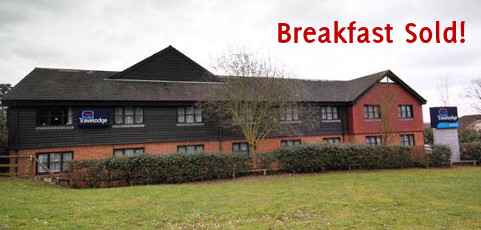A few years ago, my family and I relocated to the United Kingdom. The evening before we slept in a hotel not too far from our new house. It’s called Travelodge, and as you may already know, it’s a cheap – sorry – cost-effective, solution. No “frills” to keep the price down. I thought breakfast was included, definitely not an English one but maybe a Continental.
Next morning I approached reception, asked for it, and got the reply that they were pleased to offer, for as low as 4 pounds, a convenient breakfast. We could have it in the hall or in our room. Then she ended the answer with the final, magic, question:
“How would you like to pay for it?”
“Credit card” was my almost automatic reply.
Now, for just 12 quids we were proud owners of three bags, each one containing an apple, some tea and coffee bags, skimmed milk, corn-flakes and a croissant that barely overcame the ISO standard to carry that name.
What’s the point?
The point is that if she asked me “Are you interested in having a breakfast bag at 4 pounds each?” I would have probably answered “No, thanks.”
Her question, nothing but casual, guided me into the sale. Did she trick me into buying something I didn’t need? I believe not, we would have ended up looking for another breakfast in a residential area where there were none. And after half-an-hour of lookout for an eating place we would have been back famished and unhappy. So it turns out that it wasn’t such a bad deal.
If you feel confident that you have the right solution for your customer don’t be afraid in helping him buying it.
Sometimes to close a sale it takes just as little as the right question at the right time.
The closed question that aids customers, or prospect, in taking the decision.
And if you remember your last sales training, that’s one of the good reasons to use closed questions!


Recent Comments